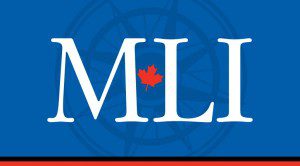 Bill C-59 succeeds in offering oversight and review but Criminal Code changes need work, says Newark
Bill C-59 succeeds in offering oversight and review but Criminal Code changes need work, says Newark
OTTAWA, Oct. 13, 2017 – C-59 is the government’s response to its past criticism of its predecessor’s Bill C-51, and for the most part the government has delivered on its promise of a modern security regime for Canada.
The government has been successful at bringing greater clarity of purpose and rationale to security and intelligence legislation and incorporating transparency and accountability in Bill C-59.
That is the conclusion of a new commentary for the Macdonald-Laurier Institute. Authored by Scott Newark, this commentary suggests C-59 needs to be examined without the acrimony and partisanship that surrounded Bill C-51. (Newark had previously analyzed Bill C-51 in a 2015 MLI commentary.)
As Newark notes, “much of the criticism [of Bill C-51] was overblown and exacerbated by the Harper government’s refusal to answer questions and debate the actual issues.”
To read the full commentary, titled “C-59: Building on C-51 towards a Modern Canadian National Security Regime,” click here.
Most significantly, C-59 establishes a National Security and Intelligence Review Agency – one that has review authority over multiple agencies, including the Canadian Security Intelligence Service (CSIS) and Communications Security Establishment (CSE), among others.
Another important change offered in Bill C-59 is the modernization of the CSE’s mandate to authorize “active” cyber operations, alongside clarity with respect to gathering “metadata.”
Changes to CSIS remain more symbolic than substantive, especially since Bill C-59 retains the “disruption” authority given to CSIS under C-51.
Some of the more dramatic changes of C-59 can be found in its repeal of the preventive arrest and investigative hearing provisions that arose after 9/11, which is justifiable given that these provisions have never been used.
More controversial are the changes to provisions on the offence of advocating or promoting terrorism, which will limit law enforcement from being able to target those who promote or advocate terrorism. As Newark notes, this change to the Criminal Code seems to be political and “needs to be confronted and hopefully reversed.”
A number of issues in C-59 need to be raised at Committee in order for the government to provide further explanations.
These include the scope of CSE’s mandate, how challenges to “No Fly List” designations should proceed, and the rationale underlying Criminal Code changes limiting how law enforcement can deal with those advocating and promoting terrorism.
***
Scott Newark is a former Alberta Crown Prosecutor and currently an Adjunct Professor in the TRSS Program in the School of Criminology at Simon Fraser University.
The Macdonald-Laurier Institute is the only non-partisan, independent national public policy think tank in Ottawa focusing on the full range of issues that fall under the jurisdiction of the federal government.
For more information, please contact David Watson, managing editor and director of communications, at 613-482-8327 x103 or email at david.watson@macdonaldlaurier.ca.




